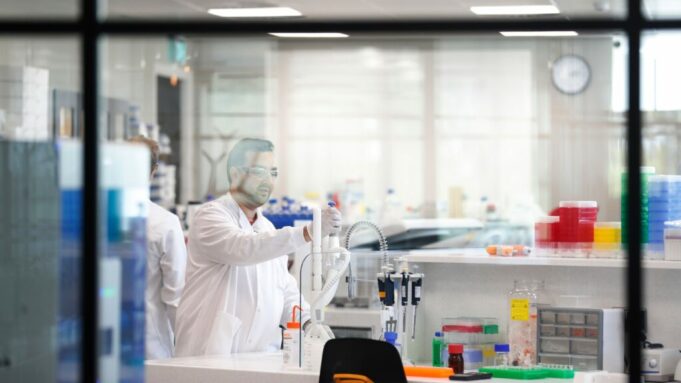The COVID-19 pandemic has had a profound impact on the world, affecting every aspect of our lives, from the way we work and socialize to how we access healthcare. One industry that has been significantly impacted by the pandemic is biopharma. The biopharmaceutical industry, for example has been at the forefront of the fight against the virus, developing vaccines and treatments at an unprecedented pace. In this article, we will explore the various ways in which the pandemic has changed biopharma and companies like Scorpius Biological Services, from research and development to manufacturing and distribution.
1. Accelerated Research and Development
The pandemic has highlighted the need for rapid research and development in the biopharma industry. In response to the global health crisis, biopharma companies have accelerated their efforts to develop vaccines and treatments for COVID-19. This has led to a significant increase in investment in research and development, with governments and private organizations providing billions of dollars in funding.
One example of this accelerated research and development is the development of the COVID-19 vaccines. In less than a year, multiple vaccines have been developed, tested, and approved for emergency use, a process that would typically take several years. This rapid development was made possible by the collaboration between biopharma companies, governments, and international organizations, as well as the use of innovative technologies such as mRNA vaccines.
Another example of accelerated research and development is the repurposing of existing drugs for the treatment of COVID-19. Companies have been working tirelessly to identify potential treatments for the virus, testing existing drugs for their efficacy against the virus and developing new therapies. This has led to the identification of several promising treatments, such as remdesivir and dexamethasone, which have been shown to improve outcomes for patients with severe COVID-19.
2. Increased Collaboration and Data Sharing
The pandemic has also led to increased collaboration and data sharing within the biopharma industry. In the face of a global health crisis, companies have come together to share resources, expertise, and data in order to develop effective vaccines and treatments for COVID-19. This spirit of collaboration has extended beyond the biopharma industry, with academic institutions, governments, and international organizations also working together to combat the virus.
One example of this increased collaboration is the COVID-19 Therapeutics Accelerator, a global initiative launched by the Bill & Melinda Gates Foundation, Wellcome, and Mastercard to accelerate the development of treatments for COVID-19. The accelerator brings together biopharma companies, academic institutions, and governments to share research, resources, and expertise in order to identify and develop effective treatments for the virus.
Another example of increased collaboration is the sharing of clinical trial data. In response to the pandemic, many biopharma companies have made their clinical trial data available to researchers and other companies, allowing them to build on existing research and accelerate the development of new treatments. This open sharing of data has the potential to revolutionize the way research is conducted in the biopharma industry, leading to faster development of new therapies and improved patient outcomes.
3. Shift to Remote and Digital Technologies
The pandemic has also led to a shift towards remote and digital technologies in the biopharma industry. With lockdowns and social distancing measures in place, companies have had to adapt their operations to ensure the continuity of research, development, and manufacturing. This has led to an increased reliance on remote and digital technologies, such as telemedicine, remote monitoring, and digital clinical trials.
Telemedicine has played a crucial role in ensuring patients can continue to access healthcare during the pandemic. Biopharma companies have been quick to adopt telemedicine platforms, allowing them to continue providing care to patients while minimizing the risk of infection. This shift to telemedicine has the potential to improve access to healthcare for patients in remote or underserved areas, as well as reduce the burden on healthcare systems.
Remote monitoring and digital clinical trials have also become more prevalent during the pandemic. With restrictions on in-person visits, biopharma companies have turned to remote monitoring technologies to collect data from patients participating in clinical trials. This has allowed clinical trials to continue despite the challenges posed by the pandemic and has the potential to make clinical trials more efficient and cost-effective in the future.
4. Changes in Manufacturing and Distribution
The pandemic has also led to changes in the way biopharma products are manufactured and distributed. With the urgent need for vaccines and treatments, companies have had to scale up their manufacturing capabilities rapidly. This has led to increased investment in manufacturing facilities and the adoption of new technologies, such as continuous manufacturing and single-use systems, which can help to increase production capacity and reduce the risk of contamination.












